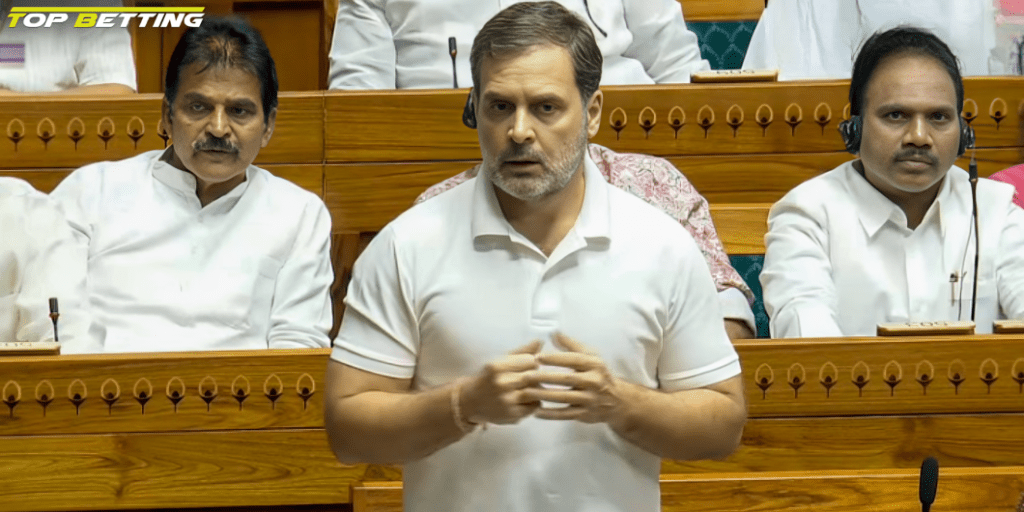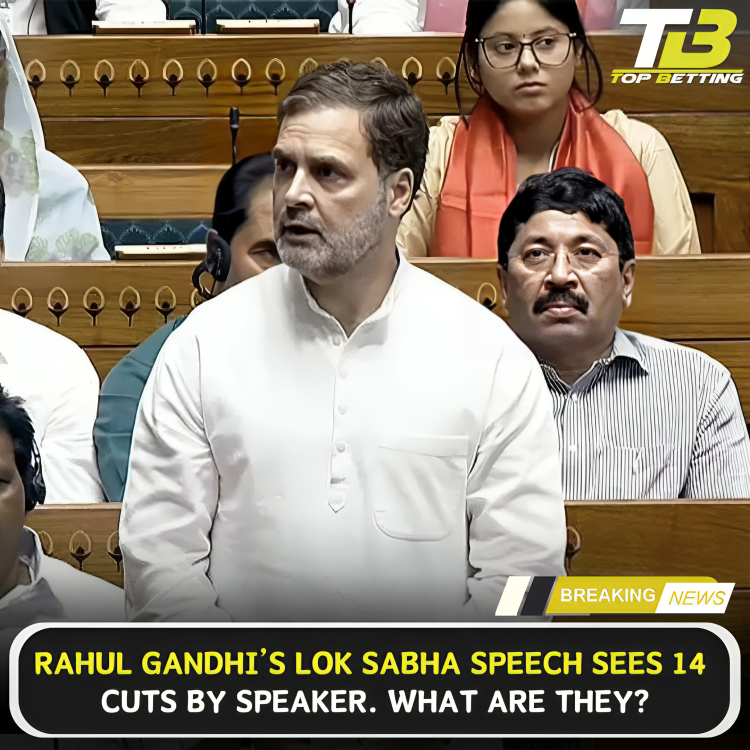
Rahul Gandhi Lok Sabha speech sees 14 cuts
Overview of the 14 Cuts Made by the Speaker
In a recent session of the Lok Sabha, India’s lower house of parliament, Rahul Gandhi, a prominent opposition leader, delivered a speech that caught the attention of many. However, the speech was not delivered in its entirety, as the Speaker of the Lok Sabha, the presiding officer, made a total of 14 cuts during the course of the speech. This incident has raised concerns about the extent to which free speech is protected in the Indian parliament and the implications it has for the country’s democracy.
The cuts made by the Speaker were not limited to a single part of the speech; rather, they were scattered throughout the entire address, suggesting that the Speaker found several aspects of Rahul Gandhi’s speech to be unacceptable or inappropriate for the parliamentary proceedings. The specific reasons for the cuts have not been made public, leaving many to speculate about the nature of the content that was deemed unsuitable for the Lok Sabha.
This incident is not the first time that a politician’s speech has faced such censorship in the Indian parliament. However, the sheer number of cuts made to Gandhi’s speech has drawn significant attention and sparked a wider debate about the balance between free speech and the rules and conventions of parliamentary discourse. As citizens, it is crucial to understand the implications of this event and what it means for the state of democracy in the country.
Analysis of the First Cut and Its Implications
The first cut made by the Speaker during Rahul Gandhi’s speech came early on, interrupting the leader of the opposition as he was addressing the government’s handling of the COVID-19 pandemic. According to reports, Gandhi had been critical of the government’s response to the crisis, particularly its failure to provide adequate support and resources to the public during the height of the pandemic.
The decision to cut this portion of the speech raises questions about the limits placed on political criticism in the Lok Sabha. In a democracy, the role of the opposition is to hold the government accountable and to voice the concerns of the people. By interrupting Gandhi’s critique of the government’s pandemic response, the Speaker may have been attempting to stifle this important democratic function.
Examination of the Second Cut and Its Impact on the Speech
The second cut made by the Speaker during Rahul Gandhi’s speech occurred as the opposition leader was addressing the issue of unemployment in the country. According to reports, Gandhi had been highlighting the government’s failure to create sufficient job opportunities for the country’s youth, a pressing concern that has only been exacerbated by the economic impacts of the COVID-19 pandemic.
The decision to interrupt Gandhi’s discussion of unemployment is particularly troubling, as it suggests that the Speaker may have been attempting to suppress a critique of one of the government’s most significant policy failures. Unemployment has been a persistent problem in India, and the government’s inability to address it effectively has been a source of frustration and discontent among the public.
By cutting off Gandhi’s speech on this topic, the Speaker may have been trying to prevent the opposition from drawing attention to the government’s shortcomings in this area. This raises concerns about the extent to which the Lok Sabha is functioning as a true forum for open and transparent debate, where elected representatives can freely and openly discuss the issues that matter most to their constituents.
Discussion of the Remaining 12 Cuts and Their Significance
While the first two cuts made by the Speaker during Rahul Gandhi’s speech have raised significant concerns, the remaining 12 cuts made throughout the speech are also worthy of examination. According to reports, these additional cuts covered a range of topics, including the state of the economy, the government’s handling of foreign policy issues, and the ongoing protests against the controversial farm laws.
The sheer number of cuts made to Gandhi’s speech suggests that the Speaker found a significant portion of the opposition leader’s remarks to be unacceptable or inappropriate for the Lok Sabha. This raises questions about the criteria used to determine what content is deemed suitable for parliamentary discourse, and whether these criteria are being applied in a fair and consistent manner.
Conclusion and Final Thoughts on the Controversy
The 14 cuts made by the Speaker of the Lok Sabha to Rahul Gandhi’s speech have sparked a significant controversy and raised important questions about the state of free speech and democracy in India. While the specific reasons for the cuts have not been made public, the sheer number of them and the wide range of topics they covered suggest that the Speaker may have been attempting to limit the opposition’s ability to comprehensively critique the government’s performance.

This incident is not an isolated event, but rather part of a broader pattern of censorship and restriction of political discourse in the Indian parliament. The fact that the Speaker has the authority to interrupt or cut short a speech if they deem it to be disruptive or inappropriate raises concerns about the extent to which the Lok Sabha is truly functioning as a forum for open and transparent debate.











